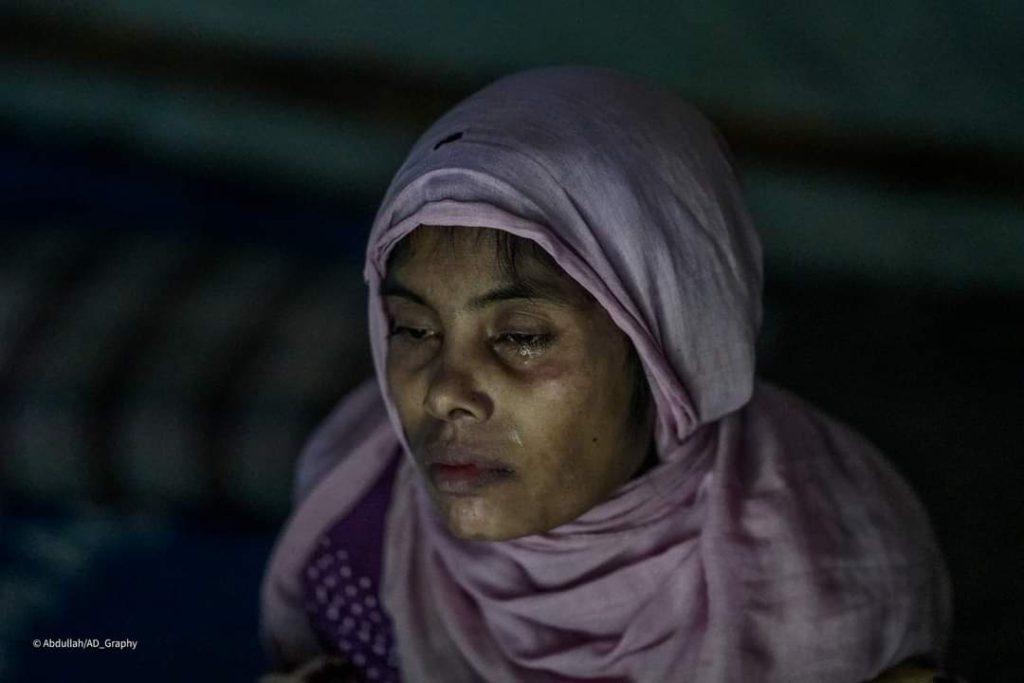Kulsuma, a 39-year-old Rohingya woman from Fenci village in Buthidaung, is a mother of five. In June-July 2024, as fierce clashes erupted between the Arakan Army (AA) and the State Administration Council (SAC) in Buthidaung Township, the AA forcibly gathered all the residents of Fenci into one place. Among them was Kulsuma’s family, who endured inhumane conditions without food or medical care. Reflecting on those dark days, Kulsuma recalls, “My children and I couldn’t eat properly for many days. I would collect leftover boiled rice thrown away by the AA to feed my children.”
Amid the conflict, humanitarian aid was blocked across Arakan State, leaving most people, especially the Rohingya, in famine-like conditions. Kulsuma herself became a witness and a victim of the violence and deprivation sweeping through Arakan. Thousands of Rohingya families were trapped in schools and communal areas, unable to return home. Although the situation in Buthidaung has stabilized, the AA still prevents the Rohingya from returning to their villages.
Kulsuma shared another harrowing experience: “In July, a bomb exploded near us, and I was injured in my leg. I hoped the AA would provide treatment, but I suffered for a month without any help. My wound worsened day by day. With young children to care for, it was unbearable. The pain was so intense that I couldn’t move.”
After enduring a month of agony, Kulsuma pleaded with her neighbors for help, praying they would take her to safety in Bangladesh. She knew it would be an arduous journey, but her resolve to survive for the sake of her children never wavered. “I begged them to carry me and my children to the border, but they refused to take us all. I couldn’t accept the thought of leaving my four children behind, but as a mother, I had to make an unimaginable choice. I left my children in my aunt’s care, hoping they would be safe,” she explained.
The journey to Bangladesh took two days and one night. Exhausted and in pain, Kulsuma finally reached the border, where she could seek medical treatment. However, even after reaching relative safety, her struggle continues—she still hasn’t received proper medical care and urgently needs help.
“I miss my children every single day. I haven’t been able to contact them or find out how they are. I’m suffering from two kinds of sorrow at the same time,” she said, her voice heavy with pain and longing.
Kulsuma’s story is just one of countless untold tragedies faced by the Rohingya community, a testament to the suffering endured by women caught in the conflict’s crossfire.
#stories #genocidesurvivors #women #RohingyaRefugeeCrisis #Arakan #documentarystories #rohingyaphotography #documentaryphotography #storytellingphotography #photostories #photojournalism
Photo Credit: Khin Maung Thein



